What was Morty Goldfader doing in the Bronx?
In candlelit joints up and down the flanks of Manhattan, the boys of 181st Street asked themselves about their pal. First, they laid out the facts. Sixty-eight years breathing, widower of five years, retiree of one—the ratios weren’t newsworthy—Mortimer Lewis Goldfader had traded his castle in Scarsdale for an apartment in University Heights. He called it his “second act”—he was consulting for an assisted living facility in Highcrest and wanted to be near his new gig. The boys didn’t buy it. “It’s a repetition compulsion,” said Norman Grunbaum, a Freudian. “He’s revisiting the primal scene of trauma. And the way his mother used to smack him around, there’s plenty of it to keep him busy.” Chickie Leventhal thought it was noblesse oblige gone wrong. “Look, my firm writes a fat check to the United Way every year. I do hundreds of hours pro bono. Just last month, I defended some livery cab drivers against their nogoodnik boss. I don’t need to live in the shit to be a stand-up guy. I look just fine in my mirror on 5th Avenue.” Their wives thought Goldfader was brave. “Brave?” said Alfred Kaplan, the real estate broker. “It’s brave to take a job you don’t need instead of kicking back somewhere warm? It’s brave to put your life on the line at 70, when the cemetery’s already mowing your plot? Yeah, for you, from Woodmere, it’s brave. But if you were born where we were, it’s anything but. It’s the work of an imbecile. It’s nuts.”
Goldfader didn’t understand what all the excitement was about. When his friends rang him up, he made a pragmatic case: “What do I need a big house in Westchester for? Junie’s buried five years, the kids are settled, the thing cost a fortune to heat. We bought in under a million—the work it needed—and sold it for five. The asking price. I set up trusts for the children and I still have enough for a rainy day. Now I’m paying $800 a month for a one-bedroom, two-bath on Davidson Avenue. Where the fishmonger used to be. You remember? Tell Mama: Get your nova from Naphtali. I take the bus to work. Pleasant ride; doorstep to desk in ten, fifteen minutes. While you’re sucking exhaust on the FDR or squishing into the 4 train.”
His buddies still couldn’t square it. What would his poor father say? Pale, hairy-handed Avram Goldfader, his jaw and throat raspberried with razor burn, had toiled as a track worker for the Interborough Rapid Transit Authority. In the 1940s, this meant repairing mechanical signals and switches, maintaining rails and ties, installing wooden gap filler, clearing the tracks of snow and debris. All day Avram danced above Jerome Avenue like Nijinsky, futzing with cranks and gearboxes and risking fatal electrocution to provide for Morty and his brother. Goldfader’s mother, meanwhile, did sewing work out of their apartment. Leah was cheaper than the tailors on the Grand Concourse; she preferred the challenge of modern French dresses but wouldn’t turn up her nose at challah covers or an embellished tallit for a bar mitzvah. Her kitchen had the feeling of a seraglio—sultry, shadowy, overrun by full-fleshed women, with steam rising from the sink and fabrics streaming from clotheslines overhead. Every night of the week, Sabbath no different, Leah Goldfader could be found humming over her machine, the treadle rattling like the El, her muscular fingers pressing and turning the cloth. The veins on the backs of her hands were kinky like a stock-index graph; her fingertips were burnished with calluses. Grade-school Goldfader joked that she could rob a bank and get away with it—she’d leave no fingerprints.
The Goldfaders, like the Grunbaums and Leventhals and Kaplans, like the rest of the hard-up yiddishkeit of the West Bronx, struggled so that their children could make good. Study and keep your mouth shut, they said, and you’ll be royalty in New York. Just remember your humble tate/mame when you’re drinking in the sunset from Riverside Drive. The Goldfader boys, alongside scores of dutiful sons and daughters across the five boroughs, did as they were told. They gave the truth to their parents’ prophecies. Morty’s younger brother, one example, graduated Brandeis and NYU law and now chaired a Wall Street firm. His base was seven figures, plus a rainmaker’s share of profits. His due—he was the exclusive representative of Kazakhstan’s national oil company. The Kazakhs, suspicious of Jews, overlooked his last name because the contracts he devised secured them billions. Also because he was an impressive guy. He spoke Russian and French with fluency. He wore custom Italian suits and wide silk ties. He was groomed daily by a live-in attendant: The pewter hair was slicked back with pomade and the beard, spotted like a composition book cover, was kept short. He’d even married a shikse from Park Avenue named Kelly. They owned a townhouse in the East 70s that once belonged to a UN secretary-general.
So in Alexander Goldfader, the assimilationist dream had been fully realized. Not that the older brother had underachieved—Morty’s success, too, was tremendous. After Columbia’s College and Mailman School, he’d worked at Cornell-Weill and then Langone Medical Center, ultimately as its chief financial officer. He was a sought-after authority on hospital administration and wrote editorials for the Times. He was cautious on reform, recognizing that most doctors overprescribed for safety’s sake, not to pad bills or screw policyholders. Rumors persisted that he’d be tapped for a federal post—in whatever administration: His politics were a soup—but he never made it past the long list. That was no great shame. Accounting for the thousands of patients, doctors and students across the NYU system was heavy duty enough.
His wife was the civil servant in the family, anyway. She’d fared better in the appointee racket. When June felt the agita that turned out to be stomach cancer, she was chief judge for the Southern District. Goldfader had met her at an NYU gala, through his brother; at the time she was Abe Fortas’s ace clerk. Leaning conspiratorially over the laden table, June Isikoff was thin to the point of brittleness and had a witch’s bump in the nose, but she argued circles around Alex and told dirty jokes. Her smile was clever, but also warm. She had the entire table in stitches.
At the start of their courtship, Junie was enthusiastic over Goldfader’s broad shoulders, his wheat-green eyes and the sliver of space between his front teeth. She told him he looked like a real-deal Polish peasant. Goldfader, for his part, adored June’s mouth. It was plum-colored, pouty; the lips swelled outward like a horn bell. All day in court the mouth sounded off, then yielded softly to him at night.
He proposed to her twice; she accepted the encore. They raised four children in a mansion in Scarsdale. There was water damage in the basement, but that was a nonfactor. The house was built into the surrounding foliage—moppish forsythias, pines, changeling deciduous trees—villa-style, with an intimidating stone facade and small, half-moon windows designed for archers. The backyard was vast, level, bordered by dense juniper. Thanksgivings, the Goldfader kids and their cousins played six-on-six football between two shaggy willow trees. On New Year’s Day, if the weather had been cold enough, the family skated on a nearby pond.
In the eyes of his old friends—who’d made gains themselves and become central players in finance, medicine, academe—Goldfader’s allotment of time on Earth had been well spent. He’d been a good earner. His kids were launched. He had his height, his looks, his hair, his health. The guy was set up for a graceful exit. Everyone assumed he’d spend his twilight years in Miami, wearing pleated chinos and Panama hats, chaperoning a litter of grandchildren down to the beach, lighting a Yahrzeit candle for Junie once a year. But instead he’d left Langone and taken a job with a no-name place in the Bronx; he’d sold his house on Wykagyl Pond—favorite rest stop of migratory birds—to move into a hovel above a check casher; he’d thrown over his life in box-seat America for a diminished existence in the ghetto of his youth.
Yes, Morty Goldfader was a hot topic among the risen Jewish boys of 181st Street.
The Goldfader children, on the other hand, were sympathetic. Aaron, Isabel, Jane, Hannah—they were socialists; they didn’t believe in living excessively. In this they took after their grandparents, who’d read The Nation and New Masses and been acquaintances of Irving Howe. Goldfader had sounded them out about his plans, mostly because he needed their say-so on the stockpile of juvenile gear in the attic. It turned out they were susceptible to the nostalgic element as well. Ask them about a mangled action figure or a bald-headed doll—last survivors of Junie’s sporadic purges—and all you heard was, “Don’t toss it! It’s a collector’s item. Send it to me.” Goldfader couldn’t imagine these figurines being worth the postage, what with their broken mechanisms and sticky joints, but he mailed them anyway. He indulged his children’s cockamamie memories, and they, in turn, enabled his. “I think it’s a great idea, Pops. You shouldn’t be in that big house alone. You need to be around people—street life. You need to be able to walk to get something to eat,” said Hannah, the baby. “But are you sure about the Bronx? I know you want to be close to work, but do you think you’ll be okay?”
Hannah asked him this from her loft in Williamsburg, which had been covered-wagon territory when Goldfader was growing up—the Hasidic frontier. But she was right: The Bronx had not been rehabilitated in the Brooklyn fashion. Even in University Heights, whose Hall of Fame presented the busts of great Americans in a marble pantheon, there were still abandoned lots everywhere—some lush with unchecked weeds; others arid and cindery. The restaurants announced themselves as such, not wanting to be mistaken in the melée of delis, supermarkets, greengrocers, convenience stores, one-stops and smoke shops. Jobless men spent their days hollering at acquaintances or conducting traffic with a rolled-up El Diario. Participants in the informal economy drove thumping Honda coupes with free-spinning rims. The primary sidewalk fragrances were decomposing fast food, cigarette smoke and motor oil—the last courtesy of the auto-body shops under the El. The crime rate was treble Scarsdale’s.
But Goldfader wasn’t worried. He had an older man’s territorial confidence. He also maintained that the neighborhood was the same as it had been—same kids being shunted off to school in hand-me-down clothes, same swollen-faced parents slogging down the hill to the subway—only now it was Spanish instead of Galician, Russian, Polish. It was just a matter of substitution: The bakeries had been replaced by bodegas; the kosher delis had become greasy spoons; the synagogues had been converted into churches. (Haphazardly—Stars of David still rose from the frontispieces.) In Goldfader’s analysis, the contemporary inhabitants of the West Bronx were strivers just like Avram and Leah. They were too busy hustling to bother with an AK like him.
Of course there was another reason he was so sanguine about his new digs. Goldfader’s second act included a second love. His secret girlfriend, a 45-year-old assistant from Langone named Ana Contras, lived a few blocks over from his Davidson Avenue apartment.
“He’s so fucking stupid, Morty, I want to wring his scrawny neck.”
Ana was on the phone. Goldfader had been watching the Yanks get drubbed by the Royals—the Royals!—when she called. For the first few seconds all he could hear through the speaker were brassy Spanish curses and a distant plaintive voice saying, Okay, Mamí, okay. Then Ana told him that her son, Edwin, had been arrested for jumping a turnstile.
“Conception gives him an unlimited MetroCard. But he wants to be a thug now. He wants to show off for his crew. Where were they when he was being handcuffed? I get a call at work: Mamí, I’m sorry, I need to tell you something. I have to leave the office early to pick him up, because since he’s underage, the police will only release him to his legal guardian. They bring him out to me, and he doesn’t have shoelaces or a belt. They took them from him when they put him in the cell. He looked like a bum, Morty—a dirty bum. I should’ve left him there. Teach him a lesson.”
Goldfader couldn’t help himself: “Nothing like a few blisters to keep him flying straight.”
“You’re joking right now?”
Edwin was 16, which, thought Goldfader, was probably a normal age to start testing yourself against the law. Morty himself had shoplifted and busted windows in his aspiring urchin days; all the boys had. He was lucky enough never to have been caught, though. Imagine if he had been! Avram would’ve pitched him into the airshaft without a second thought.
His son had been arrested once. How old was Aaron then? He’d been in high school, that was for sure. Aaron had mouthed off to a cop at an anti-war demonstration, figuring his mom was a judge, he knew his rights and what could this pig do? Well, this pig slugged him, cuffed him and hauled him down to central booking. As a mother, Junie wanted the officer’s badge, but it was dangerous for her to seek retribution. New York is a cop-crazy town—the NYPD is loathed day-to-day but loved in the abstract; an appeals court judge with federal sights couldn’t be perceived as anti-law enforcement. So Junie settled for fast-tracking Aaron’s acquittal and release. He was out on Centre Street in less than an hour. At home, he held this against her. Why hadn’t she taken the pig’s head off? The cop had broken the law: He’d used unnecessary force; he’d brutalized her son. Aaron accused her of spinelessness and fascist leanings. He’d rather have rotted and been a martyr than a mama’s boy. Of course, Aaron knew exactly why his mother couldn’t call the commissioner, but that didn’t stop him from making her miserable. In fact, for much of his young adulthood, that seemed his calling—to guilt his mom and cause tears. He’d combust, say something nasty and unforgivable and all out of proportion, and The Honorable June Ellen Isikoff, legal star and notorious bench toughie, would cry like a wretch and want to send him away. In the midst of these blowouts, Goldfader could usually coax an apology from Aaron by asking, How could you tell her that you don’t love her? The person who gave you life? This would soften him. Even the most committed radical remembered snuggling into his mother’s lap and twirling her hair around his finger.
But June wasn’t always the dartboard, let it be said. Goldfader, neutral party and peacemaker, saw the battles from both sides. Junie would nag—Aaron was her firstborn, after all—then freeze him out when he didn’t do what she wanted. Goldfader would never admit it, but he sometimes felt a vicarious thrill when Aaron wounded his mother. For he too got the business from June. She was a brilliant woman. He was no match for her.
He was no match for Ana, either, if he were being honest. She was a piece of work of an entirely different variety. Goldfader had known her by sight and sound for years before they exchanged a word. She was a presence around the office—a firecracker. Unafraid of her superiors, she would bawl out her boss, Jim Wright, when he didn’t act on her counsel. A perennial nice guy and pushover, Jim would apologize and ask her to brief him again. He probably enjoyed the attention. Ana Contras was an attractive woman. Full in the legs and butt, slight in the waist and shoulders, she had a submarine-shaped nose and large dark eyes. She kept her black hair in a ponytail; when she sped around the office, bars of light whipped along her scalp. Langone was a sexless place—in hospitals, a disenchanted view of the body prevails—but Goldfader would idly observe her figure and think to himself that out there in the world was some lucky guy.
Later, when news of June’s cancer began to circulate and his colleagues pledged their support and Ana, unexpectedly, sent him a long email about her mother’s fatal besiegement by lymphoma—when Goldfader and Ana struck up the friendship that, after June died, became a quiet office romance—Goldfader discovered that Ana’s only guy was Edwin. The recidivist father had been divorced before the son was old enough to recognize him; the mother hadn’t remarried or produced a sibling. Prior to Goldfader—and even after, really—Ana’s life was her son.
Which meant that when it came to Ana’s stiff discipline, Edwin was on his own. Goldfader didn’t envy the kid his situation. He knew from strict mothers. Leah would bean him with newspapers, ladles, rulers, books—whatever was handy. A love tap, she used to say, inspecting a bruise she’d raised. But at least he’d had a sibling around to absorb some punishment.
Well, showing solidarity with the oppressed sons of heroic mothers, Goldfader suggested Ana cut Edwin some slack.
“Slack? He gets away with murder! He wants a later curfew? Okay, midnight it is. He wants to drink a beer at his uncle’s house? Just one, mijo. All I ask is that he stay out of trouble and make good grades. His last report card had more Bs than As, and now he’s breaking the law.”
“So what are you going to do?”
“Ground him until he goes away to college and give his Playstation to Goodwill.”
Goldfader heard a booming Fine. He could tell Ana had opened Edwin’s door just to pronounce his sentence.
“You want me to talk to him?”
“What good is that going to do?”
“I don’t know. I could provide a male perspective…”
“Oh, because you’re a man you have some secret information?”
“Maybe ‘male’ isn’t what I meant. ‘Outside’ perspective. A person who’s older, who’s been around.”
“How do you know he’ll listen to you?”
“I raised four nutso kids; I know a few things.”
“Not as much as you think.”
But Ana agreed to give it a try. Goldfader had work tomorrow; Edwin, school. They arranged for the boy to come over for dinner.
Not for nothing had Goldfader continued to admire the Highcrest Center building, even all these months. There was a reason it’d been landmarked. For most of its existence, 936 Highcrest Avenue had been known as the Bronx Home for Friendless Children, and it looked every bit a Victorian orphanage, from the spirally ironwork grills and austere grey façade to the ornate keystones and terracotta mansard roof.
And in some sense, Goldfader supposed, the place was still providing shelter to the friendless. It had been abandoned for years when it was bought by a nonprofit and transformed into a nursing home devoted to HIV-positive and AIDS-afflicted residents. The facility had since distinguished itself for the quality of its traditional care and its receptivity to alternative medicine. Its president, Karen Hawthorne, was a major figure in the holistic world, a shill for the integration of Eastern and Western methods. Goldfader thought she had some crank qualities, but there was no denying that Highcrest’s patients had responded favorably to therapies like acupuncture and guided meditation. After a decade as president, though, Hawthorne had had her fill of the “Bronx project” and wanted to move on. She’d solicited Goldfader’s advice a year ago about how best to position Highcrest for a merger with a larger hospital. At the time he’d just retired from Langone and was out of his mind with boredom. Highcrest’s proximity to Ana’s apartment also wasn’t lost on him. He offered his services as a consultant, at a reduced rate commensurate with a nonprofit’s budget. Hawthorne agreed.
So now Goldfader spent three days a week at a table in the staff lounge. He reviewed financials, D.O.H. inspection reports, personnel lists and salaries, residents’ charts. He called his former peers at Montefiore and Bronx-Lebanon to gauge interest in a purchase. He chatted with the residents, some of whom had taken to calling him “Morty G.” On occasion he had lunch with the executive director, Mike Soloway, to discuss staffing and equipment issues. Today, since it was mild and bright out, they ventured into the neighborhood to try a new taco place. As they settled themselves at a table by the front window, Soloway said, “I’ve been meaning to ask you: What kind of watch is that?”
“It’s a Franck Muller.” Goldfader held out his wrist so they could both see the watch face. The white numerals were stretched and bowed like reflections in a funhouse mirror; the mat was a faded shade of pink. “Swiss watch, though it always reminds me of the Paris Metro signs. Something about the numbers. It was an anniversary gift from my wife.”
He could’ve been more specific, but Goldfader wanted to spare Soloway the awkwardness. The watch anniversary hadn’t been his and June’s last, but it was the last one they’d celebrated.
“Expensive? If you don’t mind me asking…”
“They can be. It depends what model you get. This is a middle-of-the-road one. I’ve seen it go anywhere from seven to ten.”
“You’re kidding. And you wear it every day. Just around.”
“Why not? It’s not a Rolex—no one knows what it is.”
“I guess that’s true; I never heard of it.” Soloway sawed his burrito in two with a plastic knife and squirted hot sauce into an open half. “I think I’d be a little nervous walking around with 10,000 bucks on my wrist, though. Especially around here.”
Goldfader snorted. “How long have you been at Highcrest? Have you ever had a problem?”
“Not me, no. But that’s because I look Mexican.”
Mike Soloway was squat, swarthy, shovel-faced and black-haired. He had a Latino cast, sure, but Goldfader wasn’t convinced that was the reason he hadn’t been hassled.
“Well, I don’t particularly,” said Goldfader. “And I haven’t had any trouble. I’ve been living up in University Heights for months now and felt perfectly safe.”
“That’s good.” Soloway took a bite of his burrito, chewed, then hung his jaw and began huffing through his mouth. He swallowed and reached for his soda. The ice sloshed against the waxed cup as he drank.
“Jesus Christ,” he said, putting down his drink and eyeing the hot sauce bottle. “I just thought that was Tabasco.”
Goldfader shook his head and looked out the window. Pale sunlight flashed in the scratches of the plexiglass. A woman walked by pushing a stroller, each leg a walrus, her tiny feet like fins.
“Well, I would just say keep your wits about you,” Soloway said. “You never know. People get mugged on Madison Avenue.”
“Got it,” said Goldfader, saluting. He took a sip of iced tea. “Anyway, what’s happening with Raimi Parker, on the third floor? I overheard the nurses the other day saying we were short a spirometer.”
“It’s fine now.”
“You found one?”
“No. She died.”
Immediately upon returning to the office, Goldfader and Soloway went to the bathroom to wash their hands. This was protocol in a place like Highcrest, where an OI could be a fatal prospect. They were also hospital lifers; they’d had the importance of disinfection drilled into them by ER docs and surgeons. They were compulsive about bacteria.
Goldfader turned on the faucet and let the stream heat up. His kids had gotten a lot of comedic mileage out of his attention to cleanliness. Whenever he complained that a restaurant or powder room wasn’t equipped with a pump dispenser of antibacterial soap, they would call him “Howie” (as in Hughes); whenever a conversation ended in mutual agreement, they asked him to shake on it.
The little pishers, thought Goldfader, rolling up his sleeves and removing his watch. But were they funny! As elementary schoolers they had a game: They would dress up in funky colors and formal shoes and pretend to be on American Bandstand. They called themselves the Goldfader Four. In the living room they lip-synced to The Temptations and The Miracles. Then the “managers,” he and June, had to escort them to the kitchen like through an ecstatic crowd, screaming “Keep back! No pictures!” The game ended with a round of Goldfader’s patented egg creams—milk, Fox’s U-Bet, and the pièce de résistance, cream soda instead of seltzer.
Would Edwin appreciate the art of a Goldfader Special? No, he was too old already. The Four had stopped drinking them in middle school.
Lathering his hands from wrist to fingertip, Goldfader practiced what he would say to the boy. Listen, I know how it is: You want to see what you can get away with. But let me tell you, whatever glory you might enjoy sticking it to cops isn’t worth the shit your mom’ll give you. Am I right? Abstractions like “upstanding citizen” and “contributing member of society” wouldn’t penetrate. Goldfader had to frame the argument in terms of Ana. If Edwin had any brains at all—and, from what Goldfader understood, he was no dummy—he’d see that crossing his mother was a losing proposition.
Goldfader rinsed with the steaming water and banged the dryer button with his elbow to start the air. Once his hands were dry, he re-clasped his watch, buttoned his sleeves and walked back to his desk to try and sell Highcrest Center.
“Hello?”
“Mr. Goldfader? It’s Edwin.”
“Come on up.”
Six on the dot. The kid was punctual at least—though Ana’d probably put the fear of God in him. Goldfader pressed the buzzer, holding it an extra second in case Edwin pushed the door instead of pulled. He took a last look around the apartment. The cleaning lady had come, so his magazines and mail were neatly stacked on the dining table and the fleece afghan lay folded on the backrest of the L-couch. The flat-screen was tuned to the Yankee pregame show.
Goldfader waited for the rumble of the elevator doors in the hallway, then opened his own door. Edwin raised his hand shyly and walked toward Goldfader with his head down. He was wearing a Yankees cap off-kilter, a windbreaker over a white T-shirt, stiff beige pants and swollen black high-tops with bobbing tongues. His knees flared sideways with each step, which Goldfader interpreted as a sign of diffidence.
“I see you got your laces back,” Goldfader said, moving aside to let Edwin in. Edwin looked at him sidelong with a chastened smile. “Yeah…”
“Ever think about tying them?”
Still smiling, not sure if he was being messed with, Edwin laughed and said, “Yeah, I do.”
It had been Ana’s decision not to tell Edwin the precise nature of her and Goldfader’s relationship. Five years ago, this made sense: June had just died, Goldfader and Ana worked together, Edwin was a child, secretiveness seemed appropriate. But now Goldfader wondered why they hadn’t come clean. The kid must know, instinctually if not consciously. Though he and Ana never slept over at each other’s apartments, she told Edwin who she was out with on Friday and Saturday nights.
And now she’d marched him off to see me, thought Goldfader. He and Edwin had only met a handful of times before. The boy had sprouted since their last introduction. He was almost as tall as Goldfader—probably 5’9” with growing left to do. He was lean, light-skinned; in the torso he was slight like his mother. His chin was sharp, and sparse hairs clung to his jaw.
“Have a seat over there,” Goldfader said, waving him toward the couch. “You want something to drink? I got bottled water, seltzer, orange juice.”
“Um, water, please.”
“Water it is. How’s school?”
“Fine. I’m ready for it to be summer vacation.”
“I hear ya.”
Goldfader took two bottles of water from the refrigerator and brought them over to the couch. He tossed one to Edwin, who caught it cleanly and twisted it open. Goldfader sat on the other side of the couch elbow from Edwin.
“So, I thought we’d talk a little bit, then order a pizza and watch the game. How does that sound?”
Edwin nodded and put his water on the table. “That sounds good.”
“Good.”
Goldfader turned to look at the TV. The announcer was calling the highlights, such as they were, of last night’s contest.
“Boy, do they stink or what? Can’t even beat Kansas City.”
“We’ll get ’em back tonight. CC’s pitching.”
“Fatboy? I dunno-o.”
Edwin laughed.
“It’s always the same thing with these guys,” Goldfader said. “We lay out a ton of money and then they start breaking down. Or they’re headcases and they can’t handle pitching in New York. Like what’s his face…Igawa.”
“Yeah…”
“It’s the pressure. Too much scrutiny.”
Goldfader took a sip of his water.
“So’s your mom giving you a rough time?”
Edwin shrugged. “She said tonight was the last time I’d be let out of the house until I move out of the house.”
“She’ll ease up. Just keep saying you’re sorry and keep your nose clean and it’ll blow over.”
“I hope.”
“What exactly happened?—when you were arrested?”
Edwin clicked his tongue. “See, that’s what she doesn’t understand. I wasn’t arrested. I was detained. I didn’t even get a summons, ’cause I was a minor and it was a first offense. The cop took me in because he didn’t have nothing better to do. He was just bored.”
“All right, then. So what happened when you were detained?”
“It was just—my friends skip the fare all the time. So I hop the turnstile and there’s this cop on the platform I didn’t see. He puts the cuffs on me in front of everyone, frisks me and brings me upstairs to the precinct.”
“You didn’t talk back to him?”
“No,” Edwin sulked, crossing his arms.
“All right. Well, then he was just a prick.” Edwin, looking down at the coffee table, smiled. “Most guys’ll let you off with a warning. But let me just give you one piece of advice: Never talk back to cops. Be polite, be respectful and they’ll usually be reasonable. Of course you’re not going to do anything this knuckleheaded again, right?”
Edwin nodded.
“Right. Because next time, your mom will just kill you.” Goldfader leaned forward and raised the cordless phone from its dock. “You like pepperoni?”
Shortly after Edwin left—after they’d downed an entire large pie and talked over the enigma of women and watched Sabathia take a no-no into the 7th—Goldfader realized his watch was gone. He looked in the dish on his bedroom bureau, where his wallet and billfold were neatly stacked. He riffled through the pockets of the suit he’d worn earlier. He patted the pockets of the jeans he was wearing. He checked the bathroom in his room and the one in the hall. He searched the kitchen and the dining table. He scoured the living room—under the coffee table, between the couch cushions. Nothing.
He stood in the center of his apartment pinching his lip. He tried to reconstruct his afternoon. He’d definitely had the watch when he came home. He always left it with the rest of his valuables when he changed out of his work clothes. He went back into the bedroom and checked the dish again, then lowered himself to his knees to feel beneath the bureau. No luck. He straightened and put his hands on his hips. This was annoying—he never lost anything. What had he done with it?
And then another possibility occurred to him.
Kneeling there on the floor, Goldfader hashed it out step by step. He considered all the angles. Hadn’t Edwin been a long time in the bathroom? Hadn’t Morty been wondering if the kid was all right just before he emerged, drying his hands on his pants? The more Goldfader thought about it, the more obvious it seemed. He felt indignation surge in his chest. He couldn’t believe it. That little twerp! That ingrate! A scum-sucking gonif! Goldfader raised himself up by the bureau, slid his cell phone from his pocket and texted Ana that he was coming over. He didn’t wait for a response.
On the street Goldfader hurried. He passed dog walkers, heaped trash bags, the hum of the corner store’s fluorescent lights. He hung a right at the end of the block and climbed the hill toward Ana’s apartment. The sidewalk was dimly lit from building security lamps; deep shadows hung to the cracks in the pavement. A Crown Vic trundled by—Goldfader could tell the model just from the sound. That was something about him: he knew cars. His kids called him with questions about battery life and tire pressure. When June had her patented fender benders, he’d been the one to get them fixed. Because the touch-up guys couldn’t scam him. Because he could handle himself.
Ahead Goldfader could see the round sconces of Ana’s building. Two kids sat on the steps in front of the double door. As he came closer, breathing hard, he saw that one of them was Edwin.
“Miste—Morty, what’s wrong?” said the boy, standing. His eyes were marbles—dark and glassy. So he’d gotten high to celebrate his score.
“My watch,” Goldfader said, holding out his hand. “You give it back, I don’t call the police.”
The corners of Edwin’s mouth began to droop. He put his hands to his pants pockets.
“What watch?” He looked down at his friend. “What watch?”
“What do you take me for? Did you think I wouldn’t notice? And after what you just put your mother through. I defended you, tried to help you out; I thought maybe there was hope for you. But obviously I was wrong. A thief! The worst kind! I want it back. Now.”
“Morty, I don’t know what you’re talking about,” said Edwin, showing Goldfader his palms. His mouth was quivering; he was starting to cry. “I don’t know nothing about a watch.”
For a second Goldfader faltered. Had he looked hard enough for the watch? Yes, he had. He’d searched the apartment from top to bottom. Edwin had robbed him, Goldfader was sure of it. He kept his wits about him.
“All right, have it your way.” Goldfader pulled out his phone and dialed 911. The dispatcher asked for his emergency. “Yes, hello, I need to report a burglary—”
Edwin grabbed Goldfader’s arm. “Please, Morty, I swear I didn’t take any watch. I swear. I don’t have it. I don’t have it!”
Goldfader shook Edwin’s hand off and walked a few steps away, glancing at Edwin over his shoulder. The boy dropped down onto the steps and buried his face in the crook of his elbow. Edwin’s friend looked at Goldfader with fear.
“—yes, sorry about that. I need to report a burglary; a very expensive watch of mine was stolen. I know who did it. Yes…”
“Morty? What’s happening here? Edwin?”
Goldfader turned. Ana was already moving toward Edwin, the tock of her heels reverberating off the building. She swiped Edwin’s hat off his head and brushed his hair back. Edwin kept his face hidden in his arms.
“What’s wrong, mijo?” She turned to Goldfader. “What did you do to him?”
Goldfader tilted his head away from her. The dispatcher was trying to get his attention.
He said into the phone, “Actually, there’s been a mistake. Forget it.” He flipped the phone closed and faced her. “Your reprobate son stole my Franck Muller, the watch June gave me.”
“I didn’t, mamí, I swear,” Edwin whimpered, looking up at her. “I didn’t even know he had a watch.”
Ana regarded her son with a frown. Then she said to Goldfader, “You saw him take it?”
“No. It was on my dresser before he came over; it was gone after he left.”
“It couldn’t have fallen behind? You’re sure it was there?”
“Yes, I looked all over. It was there. Now it’s not.”
Ana was quiet for a moment. She stroked Edwin’s head. “I don’t think he has it, Morty.”
Goldfader sputtered. “Oh, you don’t? A little criminal like him?”
“Hey—”
“I should’ve known. You’re just thick as thieves, you two.”
“What did you say?” Ana asked, squinting.
“I said maybe you put him up to it. You knew what the watch was worth. You knew how much it meant to me. Maybe you’re just a couple of con men, think I’m an easy target. Am I right?”
Ana’s head shivered in disbelief; her eyelids fluttered. Then she stared at the ground in front of Goldfader.
“If that’s what you think, Morty, then there is something seriously wrong with you. Call the cops, file a report, whatever makes you happy. No one has your fucking watch. Come on, boys.” Edwin and his friend rose and stalked toward the door; Ana followed with her hands on Edwin’s shoulders.
Goldfader, steaming, watched them file into the dingy lobby and climb the first flight of stairs. He glared at Ana’s back—the spread of her blazer around her hips, the narrowness of her shoulders, the sway of her ponytail all repulsed him. He summoned an image of her naked, the ends of her loosened hair forming a V between her shoulder blades.
“Who needs a fucking pear, anyway,” he said out loud and started home.
When he got there, Goldfader found the watch. It was in the hall bathroom; it had fallen into the wastebasket between the toilet and the sink. He fitted the watch onto his wrist. Then he called the office of his old friend Alfred Kaplan. It was late; Allie didn’t pick up. Goldfader left a message.
The first place winner of the 2018 Moment Magazine-Karma Foundation Short Fiction Contest
A New York City native, Jed Phillip Cohen holds degrees from Columbia University, the University of Chicago and the Iowa Writers’ Workshop. He has taught writing at the University of Iowa and Duke University, and his fiction has appeared in The Iowa Review. He currently lives in Durham, North Carolina, where he is at work on a novel.



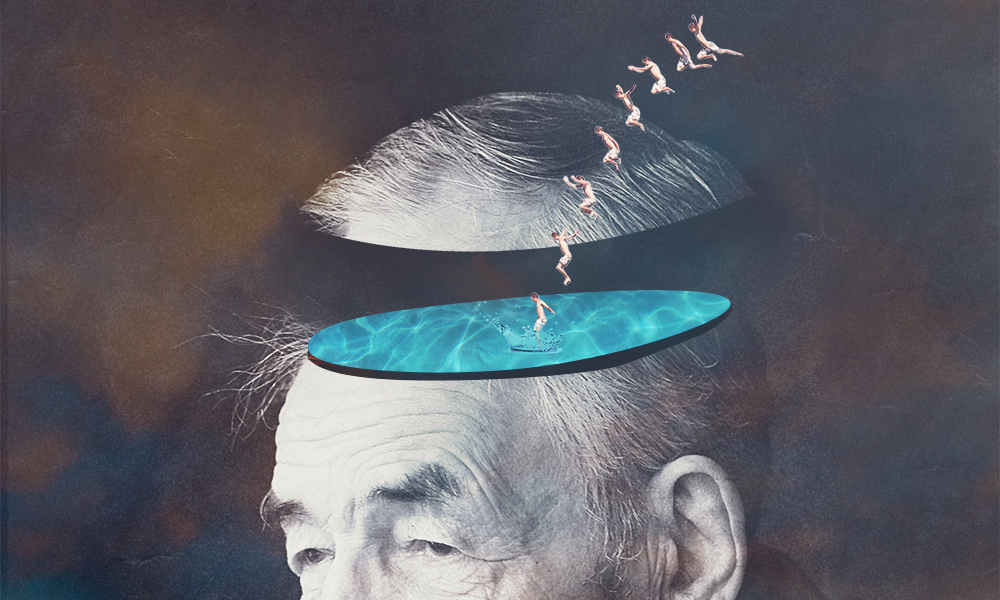
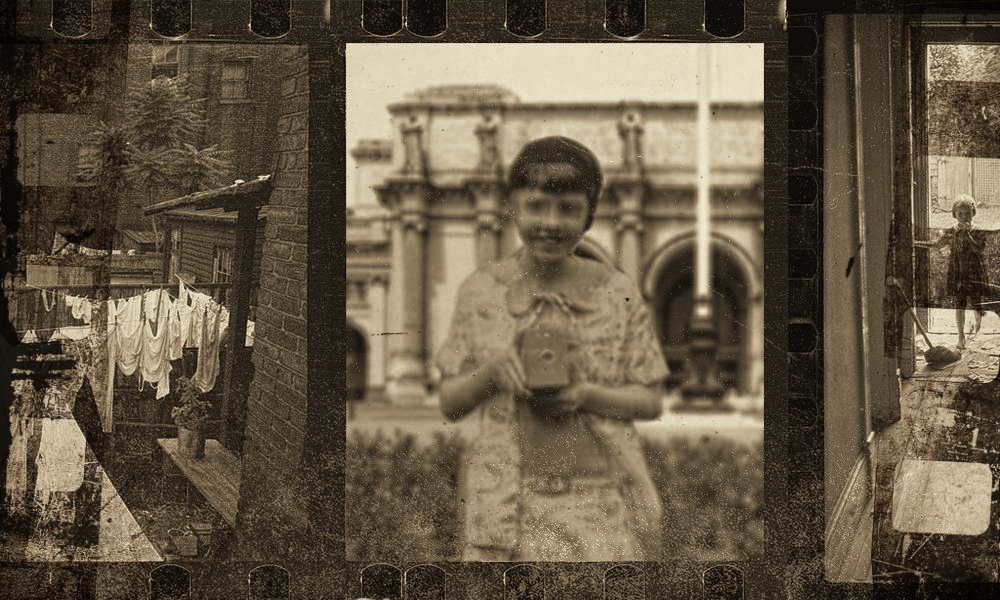

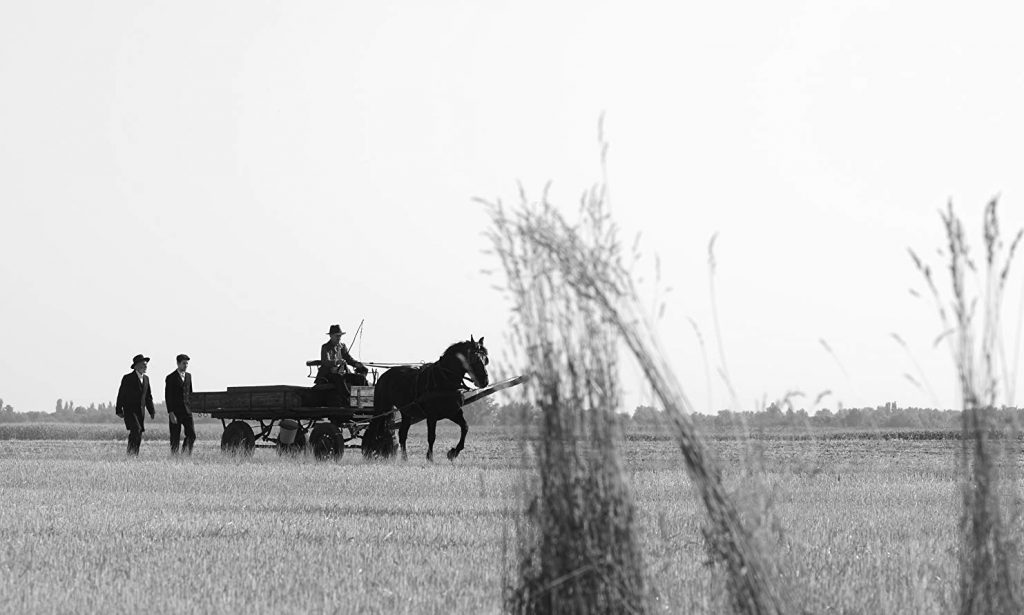

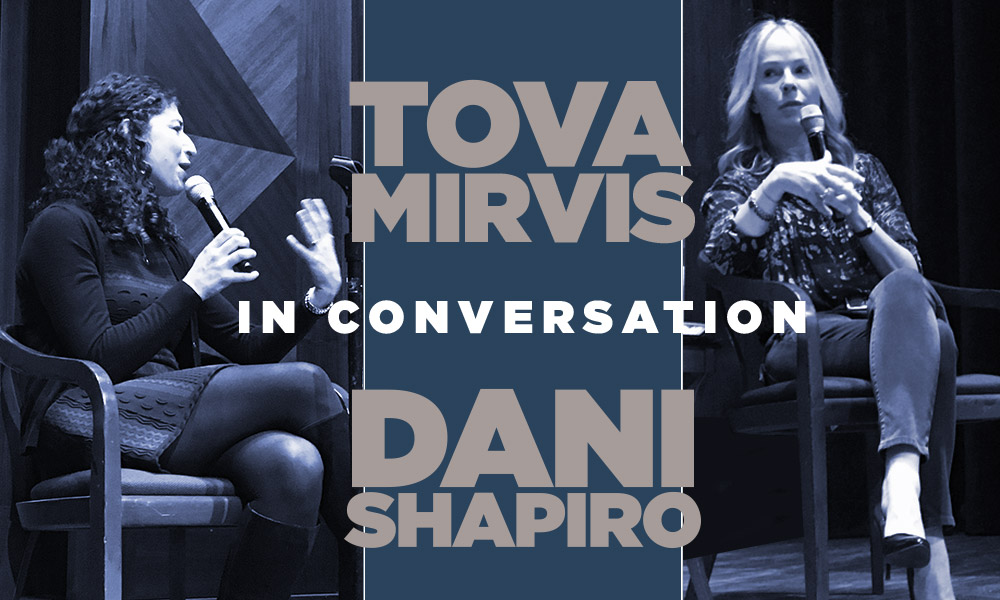
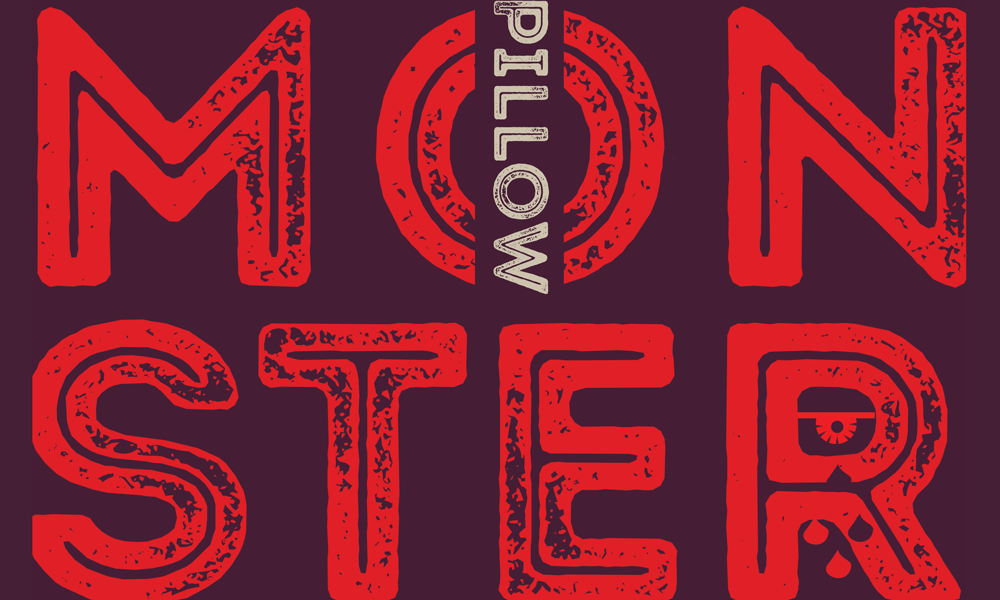

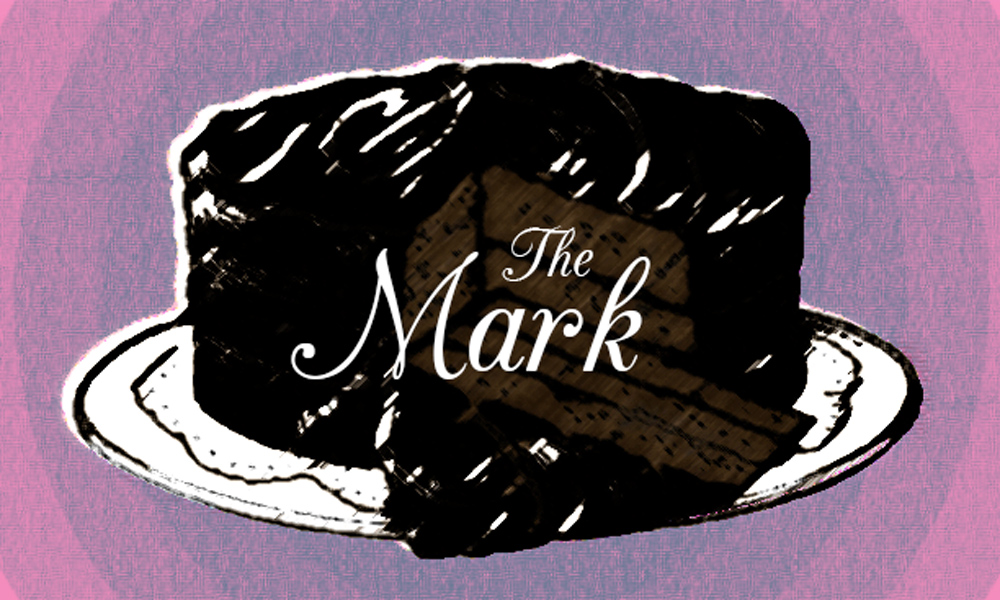


Outstanding story. I enjoyed the characterization, voice, and setting. Congrats!